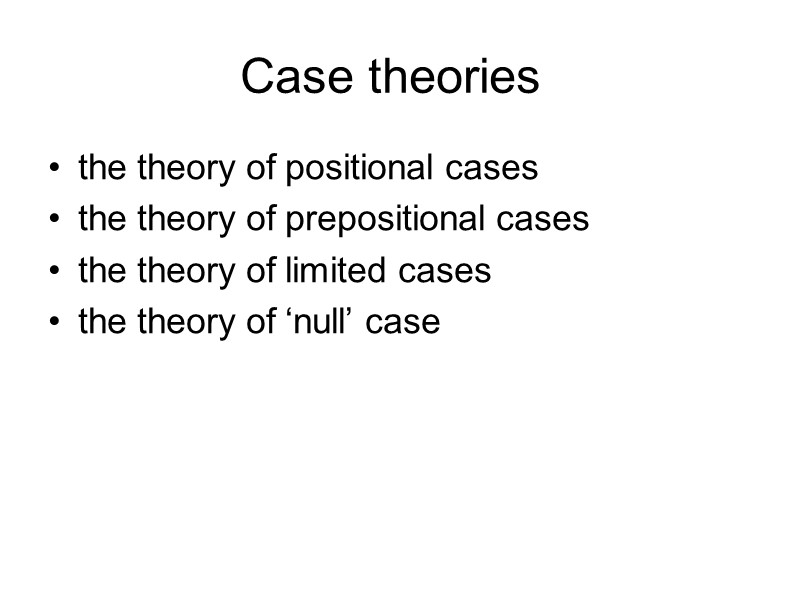 Case theories the theory of positional cases the theory of prepositional cases the theory of limited cases the theory of ‘null’ case
Case theories the theory of positional cases the theory of prepositional cases the theory of limited cases the theory of ‘null’ case
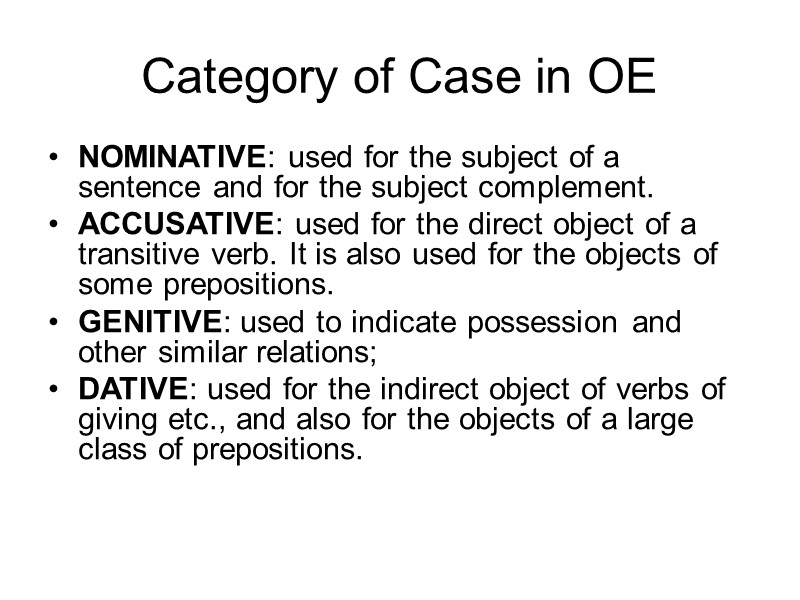 Category of Case in OE NOMINATIVE: used for the subject of a sentence and for the subject complement. ACCUSATIVE: used for the direct object of a transitive verb. It is also used for the objects of some prepositions. GENITIVE: used to indicate possession and other similar relations; DATIVE: used for the indirect object of verbs of giving etc., and also for the objects of a large class of prepositions.
Category of Case in OE NOMINATIVE: used for the subject of a sentence and for the subject complement. ACCUSATIVE: used for the direct object of a transitive verb. It is also used for the objects of some prepositions. GENITIVE: used to indicate possession and other similar relations; DATIVE: used for the indirect object of verbs of giving etc., and also for the objects of a large class of prepositions.
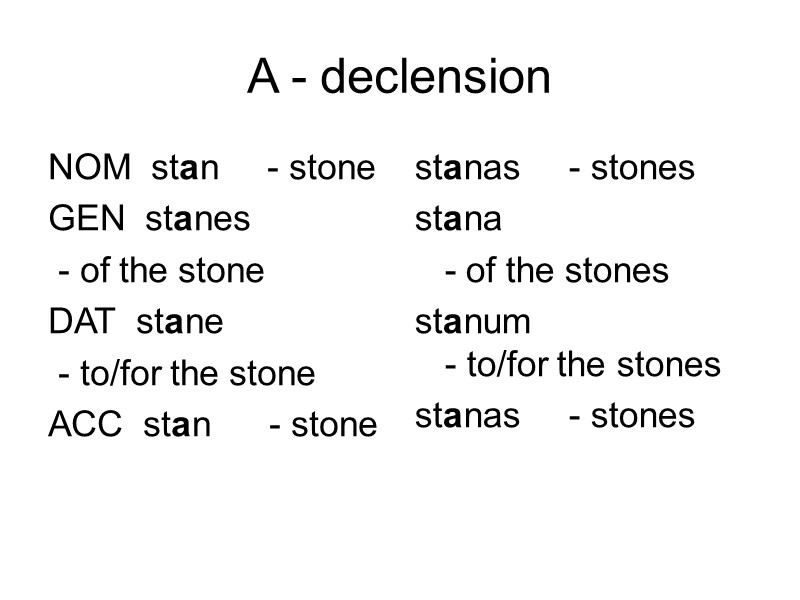 A - declension NOM stan - stone GEN stanes - of the stone DAT stane - to/for the stone ACC stan - stone stanas - stones stana - of the stones stanum - to/for the stones stanas - stones
A - declension NOM stan - stone GEN stanes - of the stone DAT stane - to/for the stone ACC stan - stone stanas - stones stana - of the stones stanum - to/for the stones stanas - stones
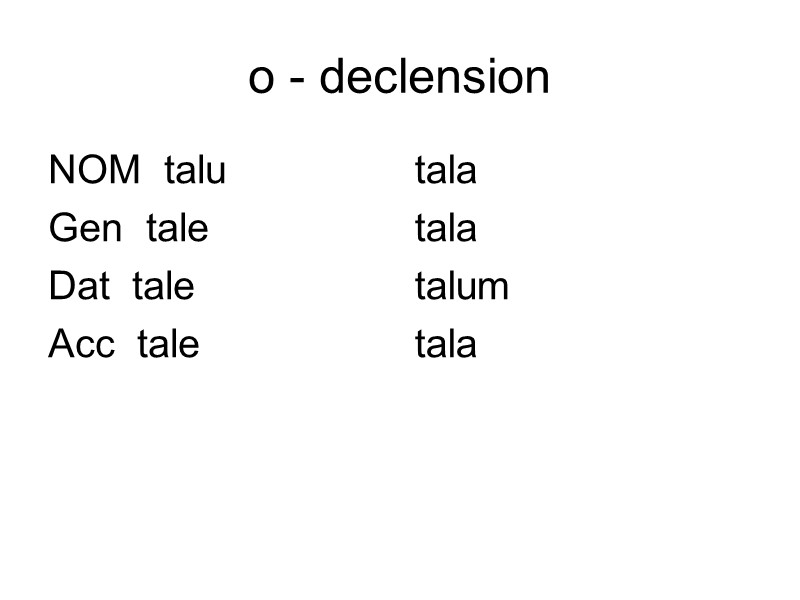 o - declension NOM talu Gen tale Dat tale Acc tale tala tala talum tala
o - declension NOM talu Gen tale Dat tale Acc tale tala tala talum tala
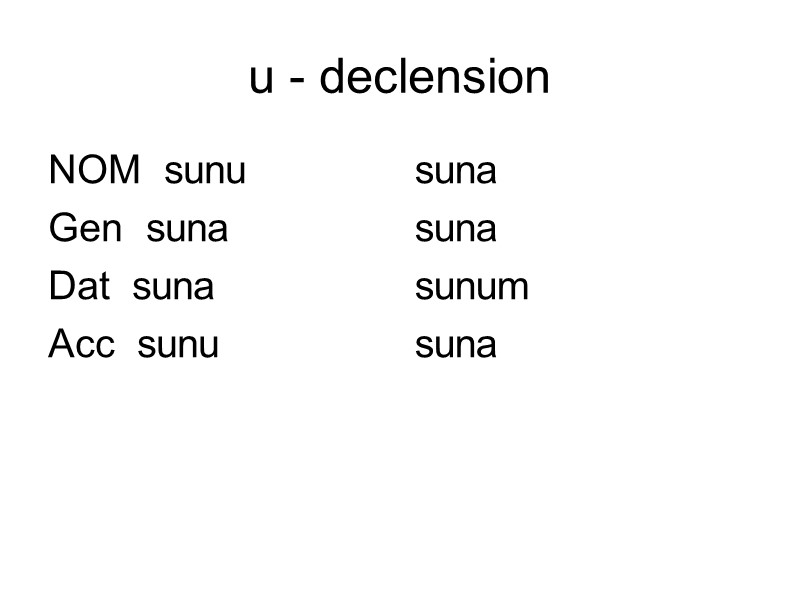 u - declension NOM sunu Gen suna Dat suna Acc sunu suna suna sunum suna
u - declension NOM sunu Gen suna Dat suna Acc sunu suna suna sunum suna
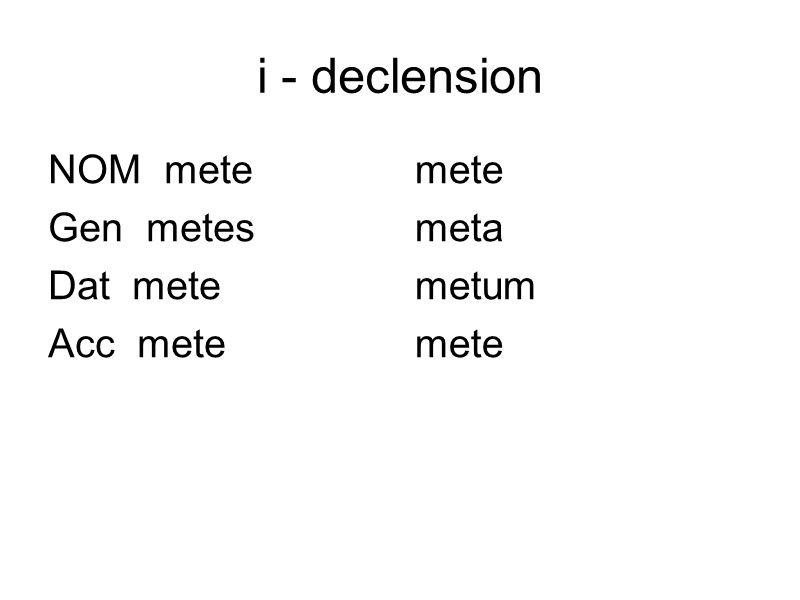 i - declension NOM mete Gen metes Dat mete Acc mete mete meta metum mete
i - declension NOM mete Gen metes Dat mete Acc mete mete meta metum mete
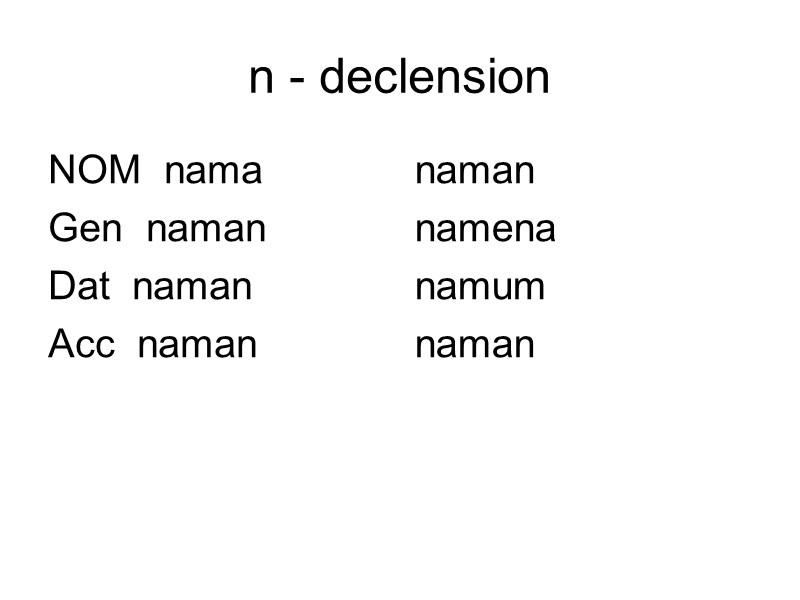 n - declension NOM nama Gen naman Dat naman Acc naman naman namena namum naman
n - declension NOM nama Gen naman Dat naman Acc naman naman namena namum naman
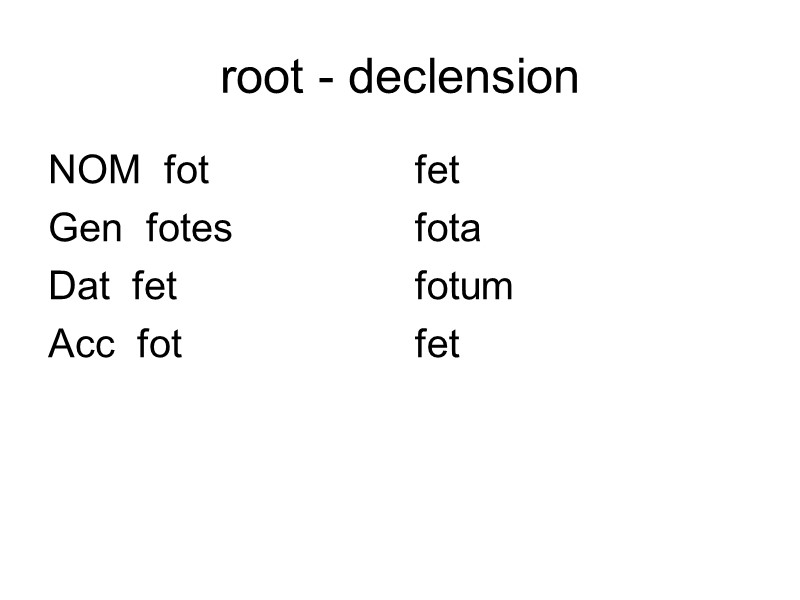 root - declension NOM fot Gen fotes Dat fet Acc fot fet fota fotum fet
root - declension NOM fot Gen fotes Dat fet Acc fot fet fota fotum fet
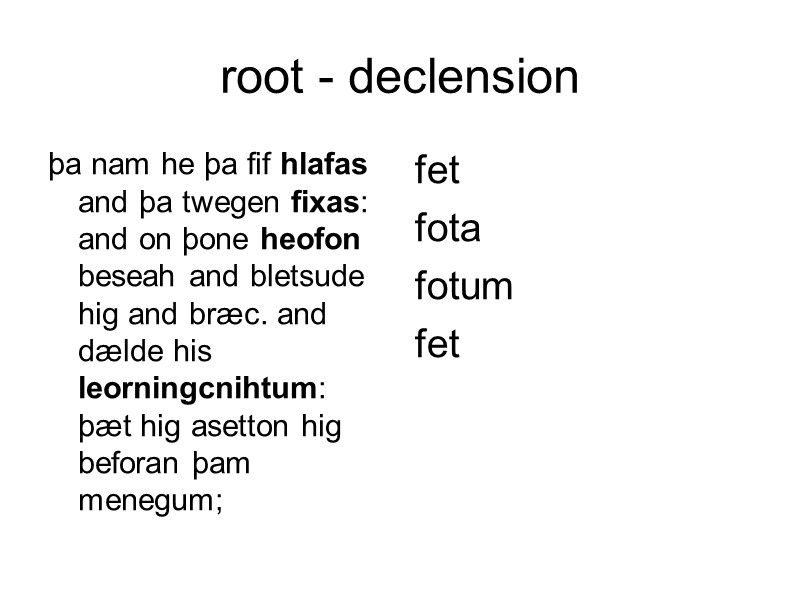 root - declension þa nam he þa fif hlafas and þa twegen fixas: and on þone heofon beseah and bletsude hig and bræc. and dælde his leorningcnihtum: þæt hig asetton hig beforan þam menegum; fet fota fotum fet
root - declension þa nam he þa fif hlafas and þa twegen fixas: and on þone heofon beseah and bletsude hig and bræc. and dælde his leorningcnihtum: þæt hig asetton hig beforan þam menegum; fet fota fotum fet
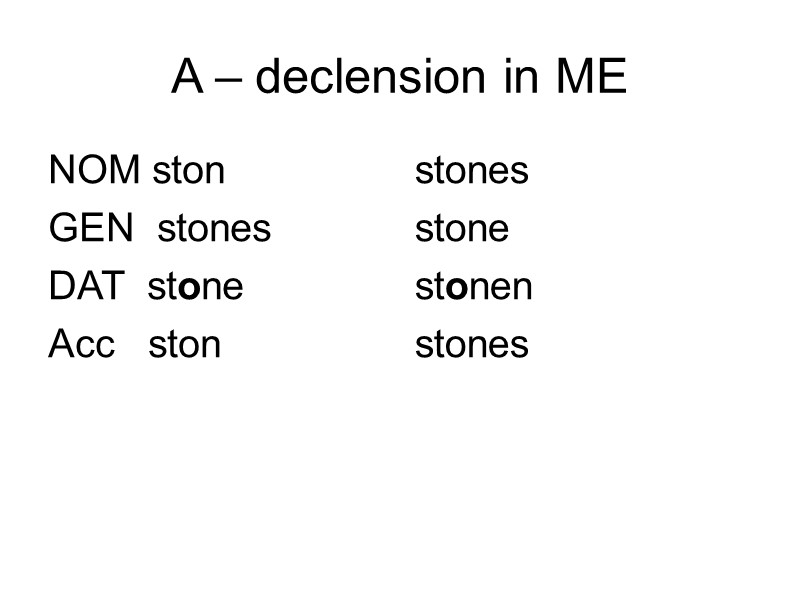 A – declension in ME NOM ston GEN stones DAT stone Acc ston stones stone stonen stones
A – declension in ME NOM ston GEN stones DAT stone Acc ston stones stone stonen stones
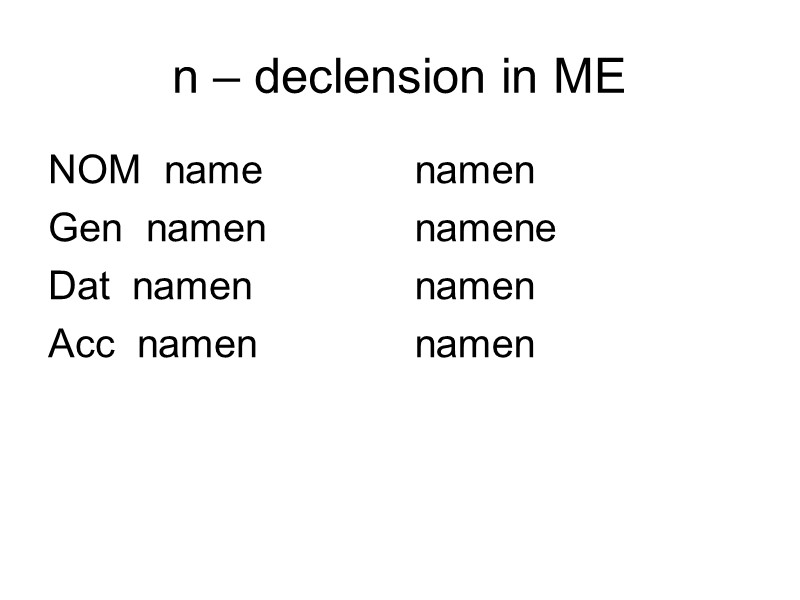 n – declension in ME NOM name Gen namen Dat namen Acc namen namen namene namen namen
n – declension in ME NOM name Gen namen Dat namen Acc namen namen namene namen namen
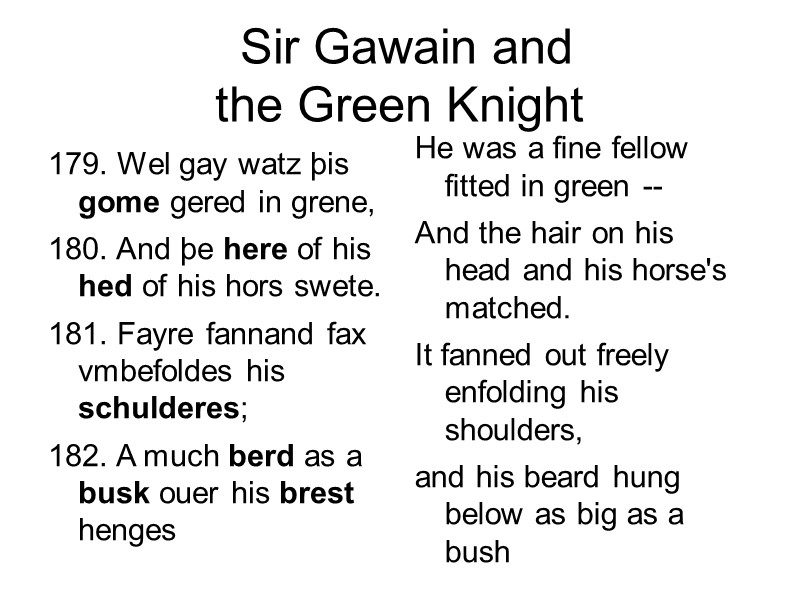 Sir Gawain and the Green Knight 179. Wel gay watz þis gome gered in grene, 180. And þe here of his hed of his hors swete. 181. Fayre fannand fax vmbefoldes his schulderes; 182. A much berd as a busk ouer his brest henges He was a fine fellow fitted in green -- And the hair on his head and his horse's matched. It fanned out freely enfolding his shoulders, and his beard hung below as big as a bush
Sir Gawain and the Green Knight 179. Wel gay watz þis gome gered in grene, 180. And þe here of his hed of his hors swete. 181. Fayre fannand fax vmbefoldes his schulderes; 182. A much berd as a busk ouer his brest henges He was a fine fellow fitted in green -- And the hair on his head and his horse's matched. It fanned out freely enfolding his shoulders, and his beard hung below as big as a bush
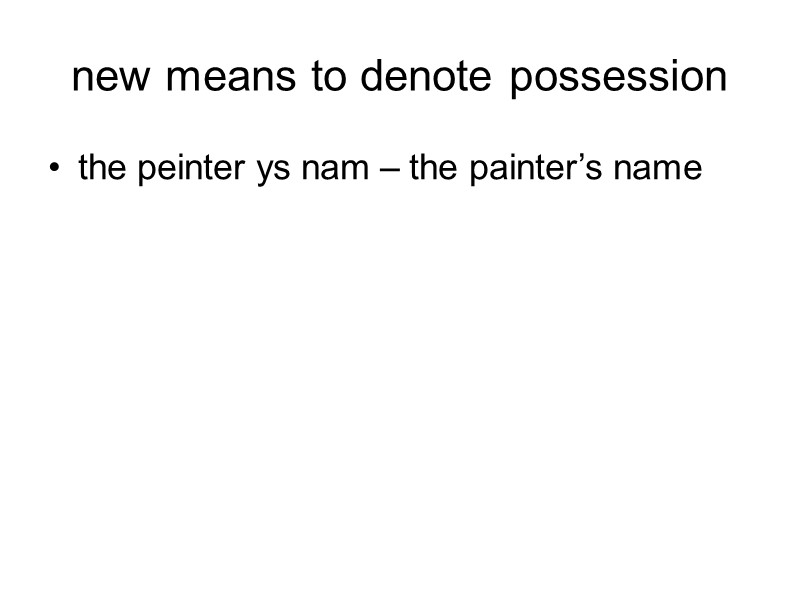 new means to denote possession the peinter ys nam – the painter’s name
new means to denote possession the peinter ys nam – the painter’s name
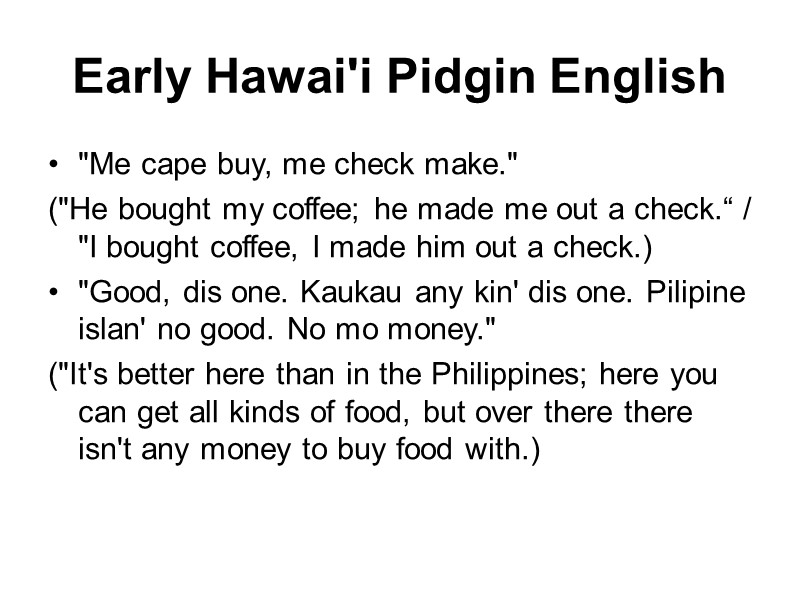 Early Hawai'i Pidgin English "Me cape buy, me check make." ("He bought my coffee; he made me out a check.“ / "I bought coffee, I made him out a check.) "Good, dis one. Kaukau any kin' dis one. Pilipine islan' no good. No mo money." ("It's better here than in the Philippines; here you can get all kinds of food, but over there there isn't any money to buy food with.)
Early Hawai'i Pidgin English "Me cape buy, me check make." ("He bought my coffee; he made me out a check.“ / "I bought coffee, I made him out a check.) "Good, dis one. Kaukau any kin' dis one. Pilipine islan' no good. No mo money." ("It's better here than in the Philippines; here you can get all kinds of food, but over there there isn't any money to buy food with.)





























